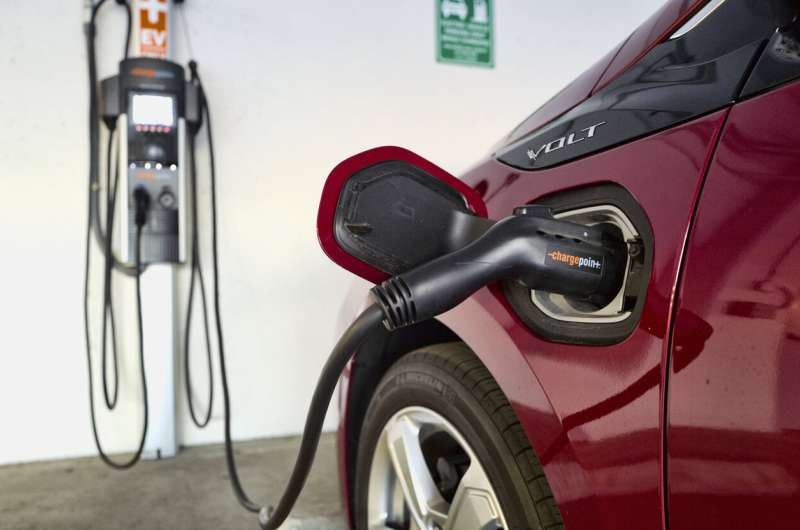Plug it in: Electric car charging station numbers are rising

When the electric car revolution arrives, will there be enough places to plug in?
There are now 26,000 electric vehicle charging stations open to the public in the U.S., with more than 84,000 plugs.
But the country, and the world, will need thousands more if drivers are going to adopt vehicles powered by batteries alone. And because they're being asked to invest before that demand arrives, automakers and charging companies are struggling to raise the numbers.
Currently electric vehicles make up only about 1.3% of total new vehicle sales in the U.S., according to the Edmunds.com auto site. Electrics are much bigger in other countries, accounting for 2.6% of global new vehicle sales last year, the International Energy Agency says.
With more than 40 fully electric vehicles on the market in the U.S. or coming within the next three years, however, auto and charging company executives say the demand is on the way.
"The automakers, more and more of them, are committing to manufacture electric vehicles," said Mike Moran, spokesman for Electrify America, a network of charging stations being built with $2 billion in settlement money from Volkswagen's diesel emissions cheating scandal. "Last year automakers announced a combined $225 billion in investments in electrification."
On Friday, General Motors and charging company EVGo announced plans to add about 700 fast-charging stations, tripling the number on the EVGo network over the next five years. They wouldn't say how much they'll invest, but plan to add 2,700 fast-charging plugs.
They'll focus on 40 unspecified metropolitan areas, with emphasis on California, Texas, Florida and Illinois. And they'll build the stations near where people go to run errands, like grocery stores or pharmacies. Typically a fast-charger can refill a battery in 30-40 minutes, so the idea is for charging to be done while people are shopping.
"We've done extensive consumer research in understanding what's important to the customer," GM CEO Mary Barra said. "Clearly having a robust charging infrastructure is something that our customers have told us is important."
Detroit-based GM says it's moving away from the internal combustion engine to an all-electric future, and it plans to roll out 20 new electric vehicles globally by 2023. Crosstown rival Ford has an all-electric SUV coming with 300 miles (480 kilometers) of range, and it's planning a fully electric version of the F-150 pickup, the nation's top-selling vehicle.
Fast-charging stations have higher kilowatt capacities than home chargers, and they're important to quickly recharge batteries on newer electric vehicles that can travel 300 or more miles on a single charge. But the bulk of the nation's public charging network is much slower. The U.S. Department of Energy says there are 3,884 public fast-charging stations in the country now with 14,858 outlets.
As more electric vehicles are sold, more fast chargers will be needed, especially for people who live in apartment buildings who can't charge at home, said Cathy Zoi, EVGo's CEO.
The 2,700 new fast-charging outlets will start to become available early next year. GM and EVGo say they'll invest in the outlets, but many will be built with funding from utilities, governments and public-private partnerships.
More public charging stations will allow GM and other automakers to better compete with Tesla, which now leads the world in electric vehicle sales and has its own private network of fast-charging stations. Tesla has network of 1,971 charging stations with 17,467 outlets worldwide. A U.S. number wasn't available.
Electrify America now has over 450 charging stations in the U.S. with more than 2,000 fast-charging outlets, Moran said. It plans to have 800 stations and about 3,500 outlets by the end of next year.
Guidehouse analyst Sam Abuelsamid said the number of chargers is increasing rapidly and should be enough to meet demand as more electric vehicles are sold. A big problem now is that each network has its own payment system, so owners need multiple accounts to access all chargers, he said. But Ford, GM and others are working to aggregate all the networks into one account.
"As more and more vehicles come to market that support faster charging and have longer ranges, especially with aggregating, enabling roaming, that's where I think it will start to make a difference," he said.
© 2020 The Associated Press. All rights reserved. This material may not be published, broadcast, rewritten or redistributed without permission.
















